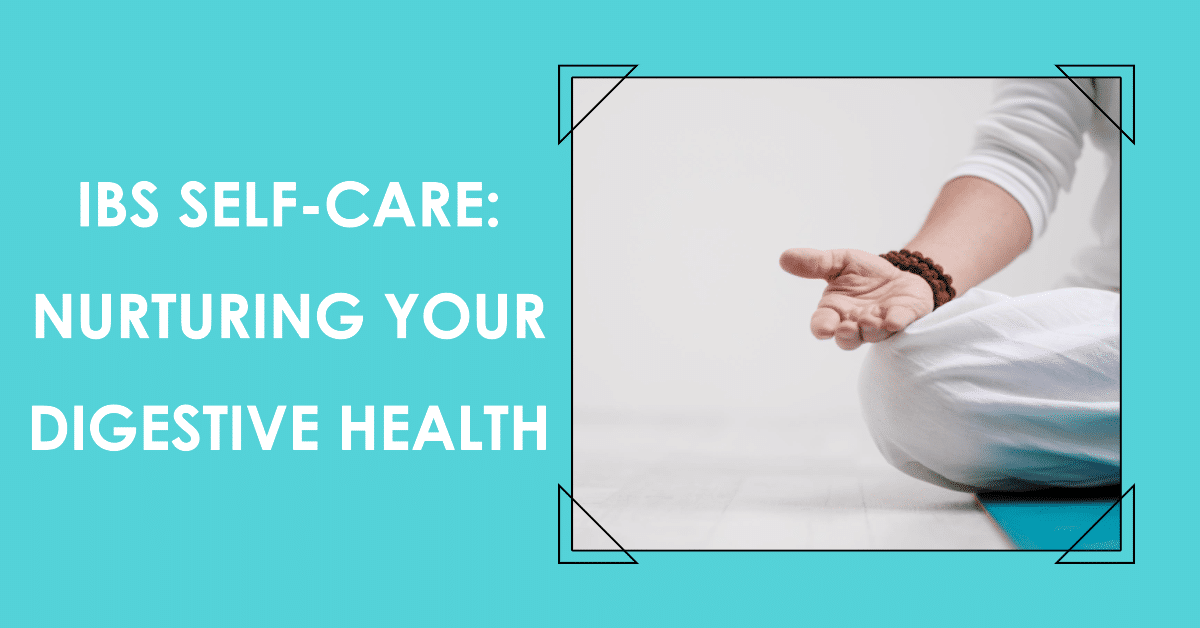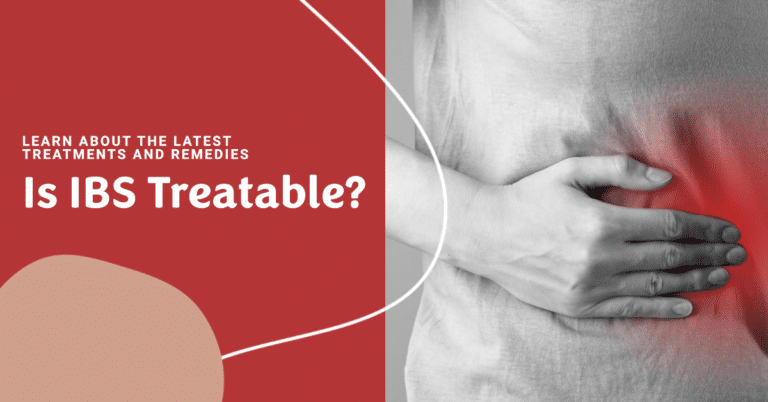Unlock Relief: 10 Game-Changing Irritable Bowel Syndrome Self Care Tips

Sick of IBS dictating your life? It’s time to fight back!
Self-care isn’t about overhauling everything; it’s about smart changes that give you back control.
Small tweaks to your diet, stress levels, and daily habits can seriously reduce flare-ups.
That means more confidence, less discomfort, and the power to live a life that’s not overshadowed by your gut.
Read on to learn simple but effective irritable bowel syndrome self care tips you can apply today!
1. Follow an Elimination Diet to Identify Trigger Foods
An elimination diet is one of the most effective ways to pinpoint trigger foods that worsen your symptoms of irritable bowel syndrome.
It involves completely removing one food at a time from your diet for 2-3 weeks, then slowly reintroducing it while closely monitoring your symptoms.
Keeping a detailed food and symptom journal is crucial to identify problem foods. Common IBS triggers to eliminate include gluten, dairy, beans/legumes, caffeinated beverages, fatty or fried foods, and spicy foods.
Work with a registered dietitian if possible to ensure you continue getting proper nutrition.
2. Increase Your Intake of Soluble Fiber
Increasing soluble fiber can help normalize bowel movements by softening and adding bulk to stool.
For diarrhea, start with a low dose fiber supplement like psyllium husk powder and slowly increase the amount over time which will hopefully help you find relief.
To remedy constipation, gradually ramp up high-soluble fiber foods in your diet like oats, nuts, berries, beans, lentils, and cruciferous vegetables such as broccoli and Brussels sprouts.
Also be sure to drink plenty of fluids. Soluble fiber soaks up water in the intestines, which helps improve consistency and motility of stool.
3. Try Probiotic Supplements to Improve Gut Health
Probiotics are beneficial strains of live bacteria and yeast that may reduce symptoms of IBS by optimizing the balance of gut microorganisms.
Look for high-quality probiotic supplements that contain a diversity of bacterial strains, at least 1 billion CFUs (colony forming units), and specific strains that have been shown effective remedies for IBS, such as Bifidobacterium and Lactobacillus.
Introduce probiotics slowly into your diet and monitor your symptoms to manage your IBS symptoms more effectively.
Probiotic foods like yogurt, kefir, kimchi, sauerkraut, and fermented foods are natural remedies that also contain beneficial microorganisms.
4. Sip Peppermint Tea to Ease Intestinal Spasms
Peppermint tea contains natural antispasmodic compounds including menthol, that can help relax intestinal muscles and ease IBS cramping and pain.
Drinking a few cups of peppermint tea per day may provide relief for many people with looking to improve IBS symptoms. Look for organic, caffeine-free options.
Peppermint oil capsules are another alternative that may be easier to take on-the-go. Peppermint should be avoided by those with gastroesophageal reflux disease (GERD).
5. Practice Relaxation Techniques to Lower Stress
For many individuals with IBS, high stress levels and chronic anxiety can significantly worsen gastrointestinal symptoms.
Incorporating daily relaxation practices such as breathwork, mindfulness meditation, yoga, tai chi, and progressive muscle relaxation is one of the best self-care tips to lower GI distress by reducing stress hormone levels like cortisol.
Even just 10-15 minutes per day of conscious relaxation can make a noticeable difference in helping you to manage IBS symptoms.
Having tried Nerva IBS as an effective treatment for IBS, I can wholeheartedly recommend this mindfulness-based stress reduction technique to help ease your symptoms
6. Follow a Low-FODMAP Diet
A low-FODMAP diet is an effective approach for many people with IBS. FODMAPs are certain types of short-chain carbohydrates that can trigger digestive issues.
They pass through the small intestine undigested, entering the colon where they act as fermentable substrates for gut bacteria, causing gas, bloating, and other IBS symptoms.
Following a low-FODMAP diet entails eliminating foods high in these problematic carbs. Work with a knowledgeable registered dietitian to pinpoint your personal FODMAP sensitivities using an elimination diet approach.
Then you can follow a tailored low-FODMAP meal plan to manage symptoms long-term while ensuring nutritional adequacy.
7. Stay Well Hydrated
Drinking enough fluids is essential for managing IBS, especially diarrhea symptoms resulting in fluid loss.
Water, herbal and green teas, vegetable broths, and diluted fruit juices are great choices. Limit caffeine and alcohol consumption as these can exacerbate issues for some patients with irritable bowel syndrome.
Get in the habit of sipping fluids steadily throughout the day rather than guzzling large amounts sporadically.
8. Prioritize Getting Quality Sleep
Not getting enough sleep or having poor sleep quality often makes IBS symptoms worse. Aim to get 7-9 hours of restful sleep per night in an effort to make a positive lifestyle change.
Establish a relaxing pre-bedtime routine, limit stimulation from electronic devices before bedtime, make sure your sleep environment is cool and comfortable, and manage stress through relaxation practices for more restful sleep.
If insomnia is an ongoing issue, consider seeing a therapist trained in cognitive behavioral therapy for insomnia (CBT-I).
9. Incorporate Gentle Physical Activity
While intense exercise can sometimes aggravate IBS symptoms, maintaining regular physical activity with lower-impact exercises provides numerous benefits for health and stress management.
Try to exercise daily by going for walks, swimming, doing gentle yoga or Pilates, riding a stationary bike, etc.
Check with your healthcare provider for exercise guidelines specifically designed to relieve IBS symptoms.
Avoid pushing yourself too hard, especially during flare-ups.
10. Keep an IBS Symptom Journal
Keeping a daily journal tracking your IBS symptoms, bowel movements, diet, lifestyle factors, stress levels, and more can help you identify triggers and customize your treatment plan.
Note specifics like meal timing, ingredients, servings, symptoms arising, sleep, daily routines, moods, menstrual cycle details if relevant, etc.
Review your journal regularly for patterns and potential triggers. A journal provides invaluable personalized lifestyle and diet insights that improve your self-care for IBS and will hopefully lead to improved quality of life.
Irritable Bowel Syndrome Self Care – Final Thoughts
Managing irritable bowel syndrome requires consistency and patience as you determine which remedies, dietary changes, stress management strategies, and lifestyle adjustments help manage IBS symptoms most effectively.
Work closely with your healthcare provider to develop an integrative self-care plan tailored to your needs. Be open to trying both conventional approaches and complementary therapies that can help with IBS pain.
With time, your symptoms should improve, and your quality of life increase as you refine your IBS management toolkit using evidence-based self-care strategies.
Disclaimer: This content is based on my personal experience as an individual diagnosed with celiac disease and IBS (Irritable Bowel Syndrome) who follows a strict gluten-free diet. This does not constitute medical advice. Please consult a medical professional, nutritionist, or qualified dietitian for personalized, professional advice.



